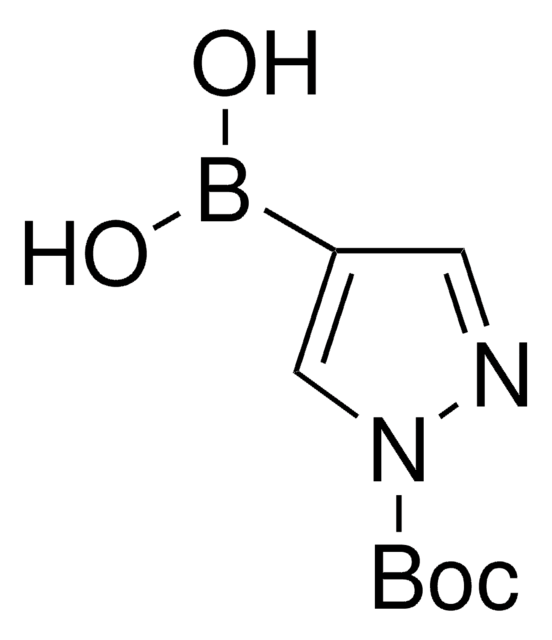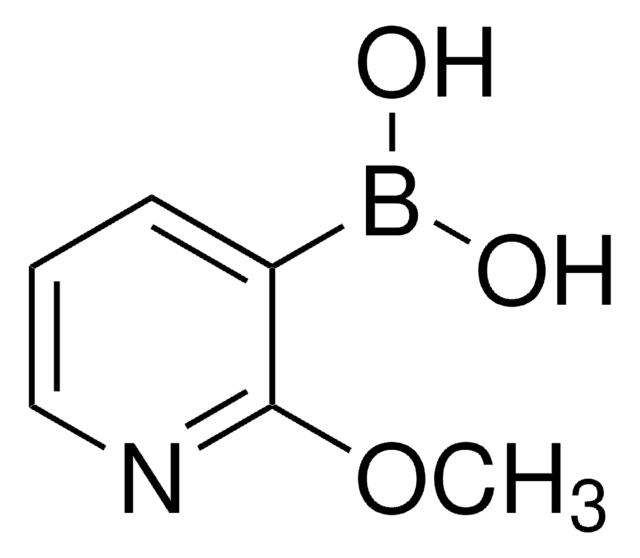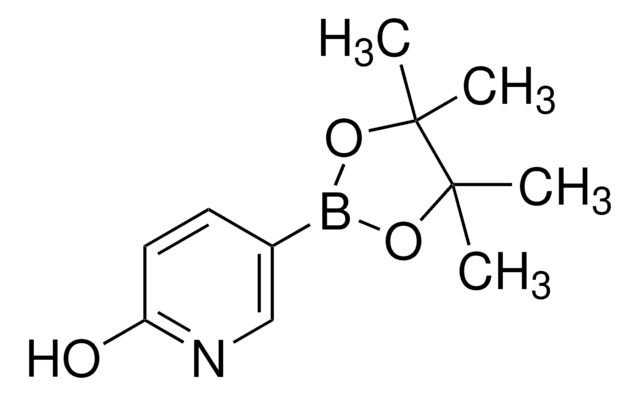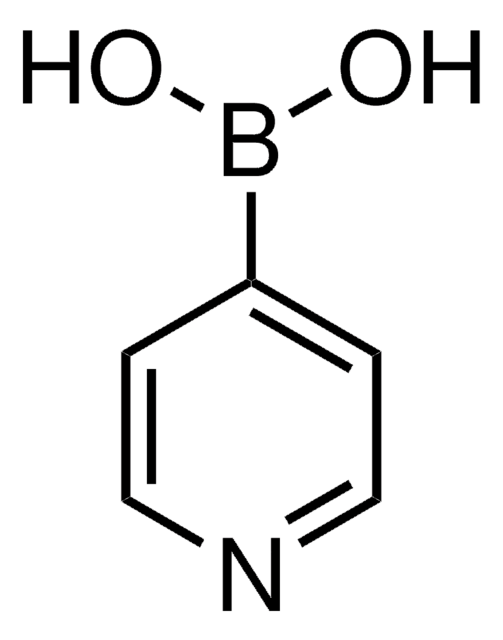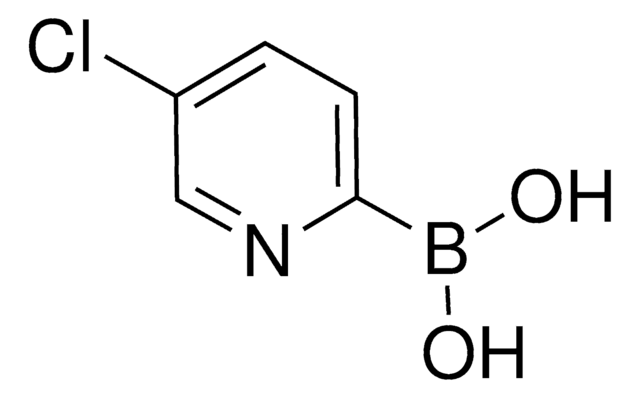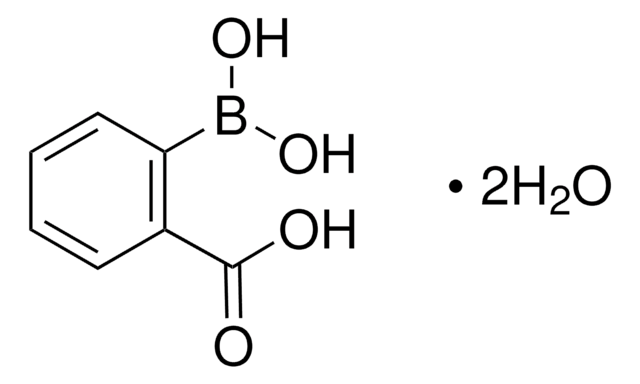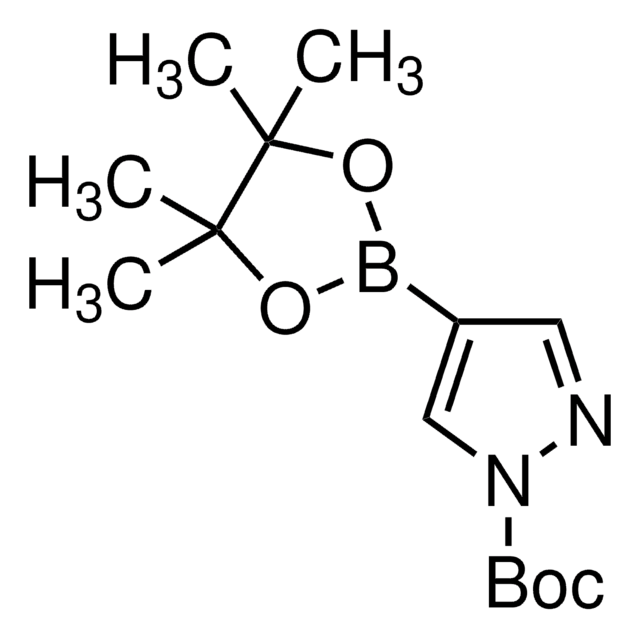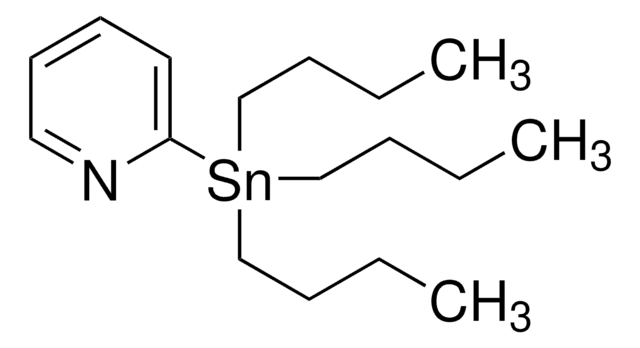637386
6-Chloro-3-pyridinylboronic acid
≥95.0%
Synonym(s):
2-Chloro-5-pyridineboronic acid
Sign Into View Organizational & Contract Pricing
All Photos(3)
About This Item
Empirical Formula (Hill Notation):
C5H5BClNO2
CAS Number:
Molecular Weight:
157.36
MDL number:
UNSPSC Code:
12352103
PubChem Substance ID:
NACRES:
NA.22
Recommended Products
Quality Level
Assay
≥95.0%
form
solid
mp
165 °C (lit.)
functional group
chloro
SMILES string
OB(O)c1ccc(Cl)nc1
InChI
1S/C5H5BClNO2/c7-5-2-1-4(3-8-5)6(9)10/h1-3,9-10H
InChI key
WPAPNCXMYWRTTL-UHFFFAOYSA-N
Application
6-Chloro-3-pyridinylboronic acid can be used:
- To prepare biologically significant 3-arylcoumarins by reacting with 3-chlorocoumarin through Suzuki reaction.
- As a substrate in the synthesis of 11-(pyridinylphenyl)steroid with progesterone agonist/antagonist profile.
- As a substrate in the preparation of α- secondary and tertiary pyridines by the reaction of pyridotriazoles with boronic acids.
- As a substrate in the palladium-catalyzed α-arylation of saturated cyclic amines and N-methyl amines.
Other Notes
Contains varying amounts of anhydride
Signal Word
Warning
Hazard Statements
Precautionary Statements
Hazard Classifications
Eye Irrit. 2 - Skin Irrit. 2 - STOT SE 3
Target Organs
Respiratory system
Storage Class Code
11 - Combustible Solids
WGK
WGK 3
Flash Point(F)
Not applicable
Flash Point(C)
Not applicable
Personal Protective Equipment
dust mask type N95 (US), Eyeshields, Gloves
Choose from one of the most recent versions:
Already Own This Product?
Find documentation for the products that you have recently purchased in the Document Library.
Metal-Free Denitrogenative C-C Couplings of Pyridotriazoles with Boronic Acids To Afford α-Secondary and α-Tertiary Pyridines
Dong C, et al.
Organic Letters, 21(11), 4148-4152 (2019)
Synthesis of 3-arylcoumarins via Suzuki-cross-coupling reactions of 3-chlorocoumarin
Matos MJ, et al.
Tetrahedron Letters, 52(11), 1225-1227 (2011)
11-(Pyridinylphenyl) steroids-A new class of mixed-profile progesterone agonists/antagonists
Rewinkel J, et al.
Bioorganic & Medicinal Chemistry, 16(6), 2753-2763 (2008)
α-Arylation of Saturated Azacycles and N-Methylamines via Palladium (II)-catalyzed C (sp3)-H Coupling
Spangler JE, et al.
Journal of the American Chemical Society, 137(37), 11876-11879 (2015)
Articles
Suzuki-Miyaura cross-coupling reaction is extensively used in organic chemistry, polymer science, and pharmaceutical industries.
Our team of scientists has experience in all areas of research including Life Science, Material Science, Chemical Synthesis, Chromatography, Analytical and many others.
Contact Technical Service